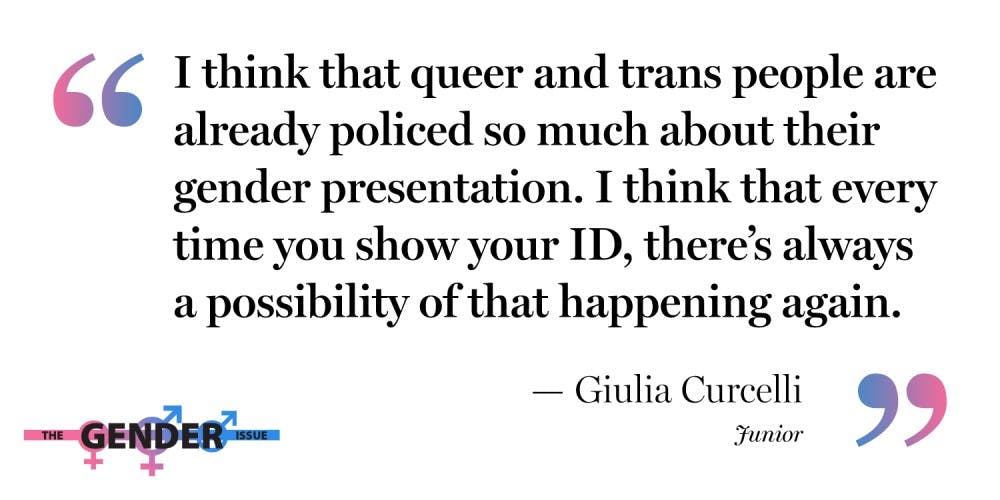When UNC junior Giulia Curcelli bought alcohol at Harris Teeter a few months ago, they presented their ID like anyone else — but then came the questioning.
Curcelli, who identifies as non-binary and genderqueer, said they had to talk to a manager about why their photo didn’t match how they looked. They said while this was a fairly trivial instance, ID laws could present potential problems for non-binary people — such as the newly enacted North Carolina Voter ID law.
“I think that queer and trans people are already policed so much about their gender presentation,” they said. “I think that every time you show your ID, there’s always a possibility of that happening again.”
The ID
According to the state law that was enacted in 2016, voters must present a photo ID when showing up to vote, which could include a no-fee voter ID card for those who do not already have an acceptable ID.
Jen Jones, a spokesperson for Democracy North Carolina, said transgender voters often face obstacles when registering to vote. She said there are many different sections they will need to fill out on voter registration forms, including the optional gender identity section.
“(It’s) still important, too, when you’re facing tremendous obstacles at the polls, and you will have people looking at your ID as a gateway to having your ballot count or not,” Jones said. “So it’s incredibly important for transgender people to register, re-register and make sure their voices are heard by having their ID match their gender identity.”
Marge Howell, spokesperson for the North Carolina Department of Motor Vehicles, said in an email that transgender residents who apply for a driver’s license or voter ID card are required by law to provide a physician’s verification that sex change surgery has been completed. If there has been no sex change operation, the resident should indicate their biological sex on the ID application.
Gerry Cohen, former special counsel of the N.C. General Assembly, said although it’s possible for people to get a new picture at the DMV, it can be a hassle.




